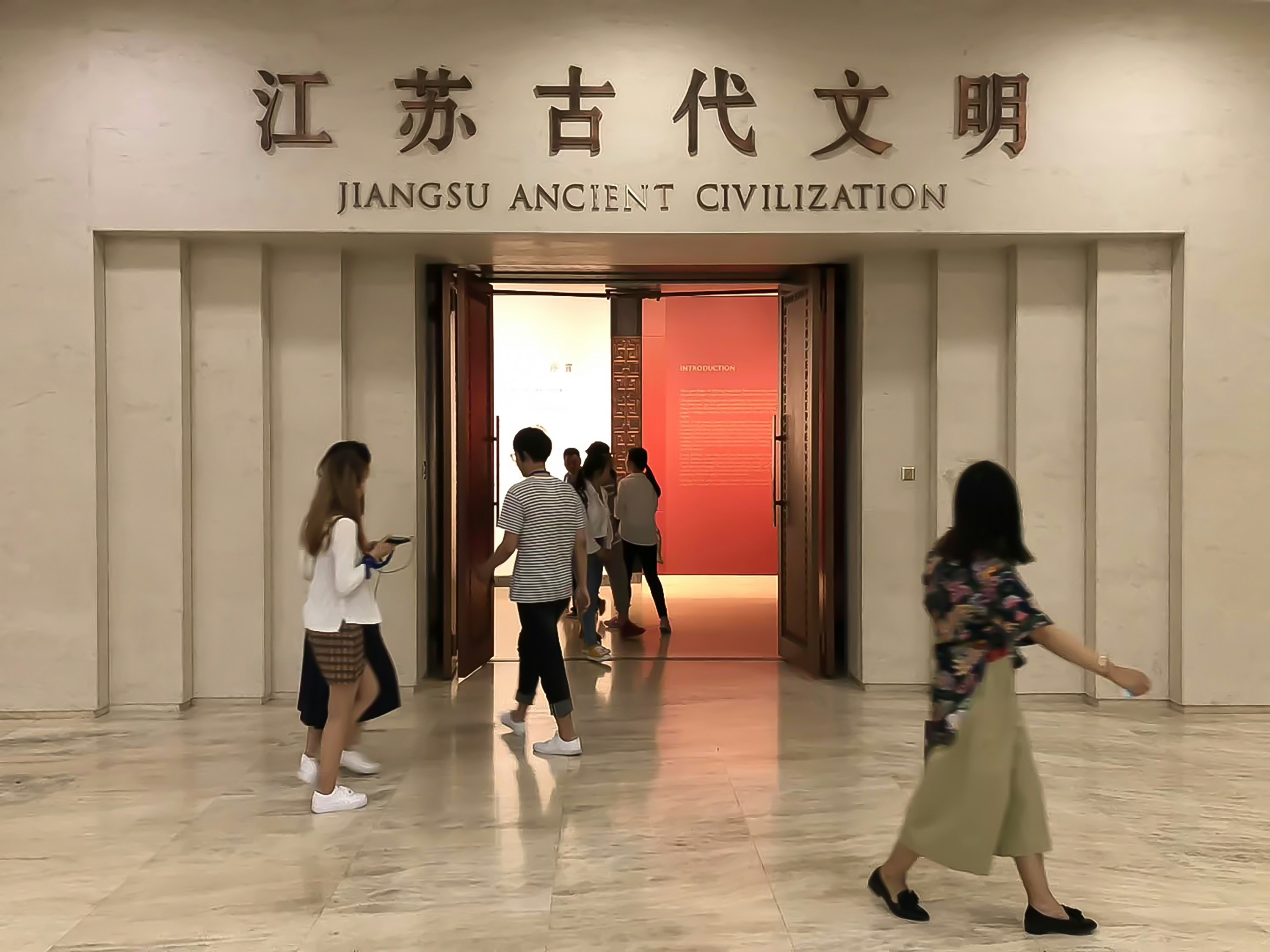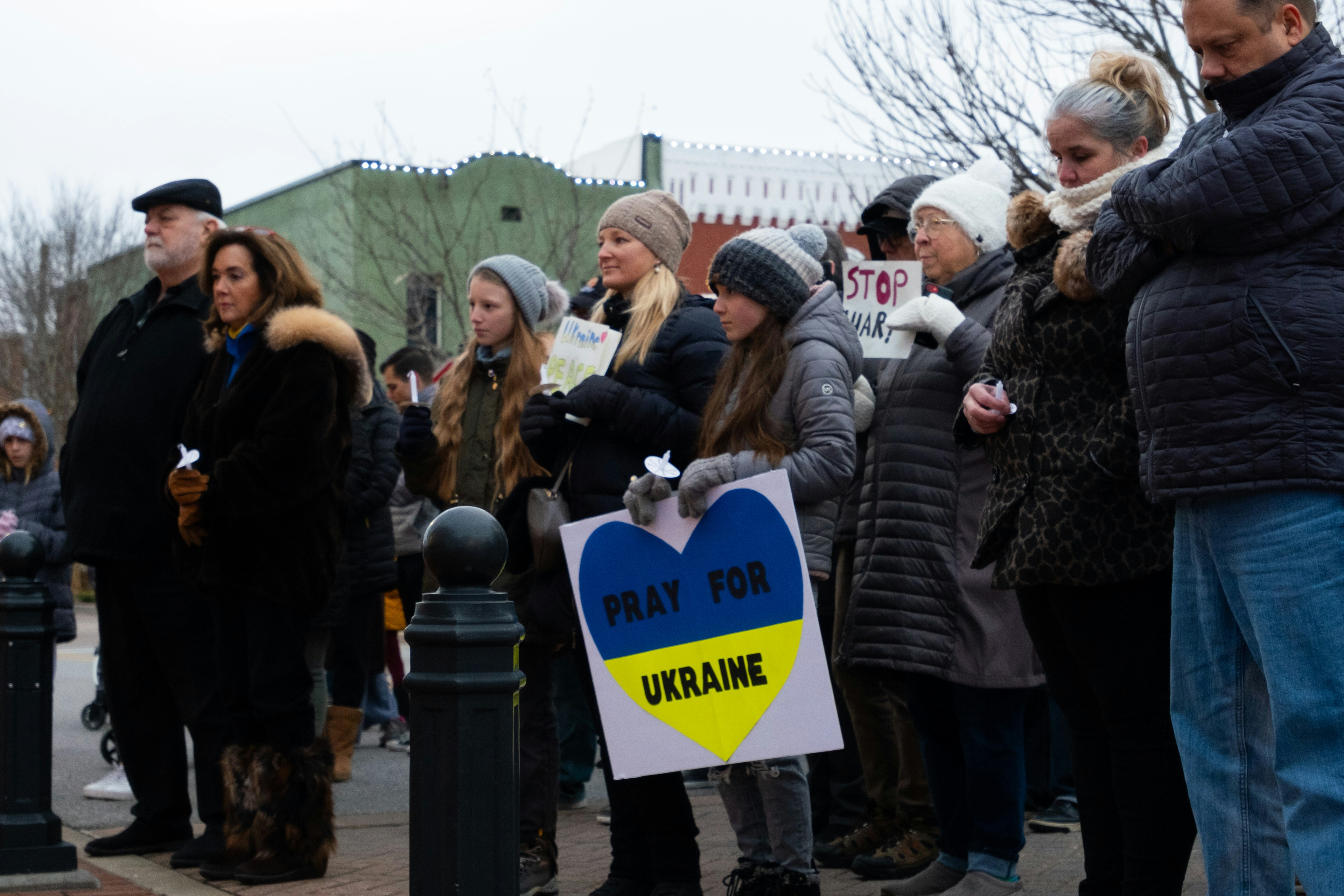
The Ukraine Conflict
The Ukraine conflict, which erupted in 2014, has deep historical roots that can be traced back to complex social, political, and economic factors. It began with Ukraine’s decision to abandon plans for closer ties with the European Union in favor of a relationship with Russia, sparking widespread protests known as the Euromaidan movement. The immediate aftermath saw the annexation of Crimea by Russia and the subsequent conflict in Eastern Ukraine, where pro-Russian separatists declared independence in the Donetsk and Luhansk regions, leading to a protracted military standoff.
Key players in this conflict include the Ukrainian government, Russian authorities, and various international actors, notably Western nations. The United States and European Union have consistently supported Ukraine, imposing economic sanctions on Russia and providing various forms of aid, military and humanitarian alike. Conversely, Russia has been accused of providing support to separatist groups, complicating the resolution of the crisis.
The implications of the Ukraine conflict extend beyond regional borders, affecting global politics and security dynamics. It has sparked debate around issues such as national sovereignty, territorial integrity, and the balance of power in Europe, leading to heightened tensions between NATO and Russia. The conflict also underscores the significance of international alliances and partnerships. As the conflict continues, the roles of influential nations like India and China have garnered attention from Western powers, particularly the US, which is now urging G7 nations to leverage their relationships with these countries to promote a resolution in Ukraine. Their involvement is seen as crucial due to their significant political and economic clout in the global arena.
The Role of G7 Countries
The G7, or Group of Seven, comprises some of the world’s largest advanced economies, specifically Canada, France, Germany, Italy, Japan, the United Kingdom, and the United States. These nations play a pivotal role in shaping international relations, influencing global economics, and addressing pressing geopolitical concerns. The collective strength of the G7 countries lies not only in their economic clout but also in their political cohesion and shared values such as democracy, human rights, and the rule of law. This unity positions them as significant players in fostering international cooperation and resolution of conflicts.
The cooperative efforts of the G7 have historically proven to be impactful in addressing global crises. For instance, throughout the ongoing Ukraine conflict, the G7 nations’ coordinated approach has resulted in economic sanctions against Russia, aimed at curtailing its aggressions. The combined influence of these countries enables them to advocate effectively for peace and stability, making their role in international relations crucial. With their substantial economic resources, they can also extend aid and support to crisis-stricken nations, demonstrating their commitment to collective security.
<paligning a=”” adopt=”” and=”” approach=”” be=”” both=”” by=”” can=”” china=”” collaborative=”” conflict=”” conflict.=”” consistent=”” constructive=”” context=”” countries=”” crises,=”” crucial=”” demonstrating=”” diplomatically=”” encourage=”” engaging=”” enhancing=”” essential=”” exert=”” for=”” framework=”” from=”” g7=”” g7’s=”” g7.=”” geopolitical=”” global=”” hold=”” in=”” india=”” influence=”” international=”” is=”” like=”” member=”” message=”” more=”” nations=”” of=”” on=”” p=”” peace=”” presenting=”” require=”” resolution.=”” responses=”” security.
US Strategy for Global Diplomacy
The United States has consistently emphasized the importance of a diplomatic approach in addressing global conflicts, with the current situation surrounding Ukraine exemplifying this strategy. By urging G7 nations to exert pressure on India and China, the US aims to foster a collaborative international environment conducive to peace and stability. The engagement of these two significant global players is seen as critical, given their substantial influence and relationships with Russia. Through diplomacy, the US hopes to encourage a more constructive dialogue that could lead to a resolution of the ongoing conflict.
The rationale behind the US approach lies in the recognition that global challenges, such as the war in Ukraine, are often interconnected and cannot be resolved in isolation. By bringing India and China into discussions, the US seeks to leverage their strategic positions and economic ties with Russia to encourage constructive engagement. This presents an opportunity for G7 countries to align their efforts with other influential nations, enhancing the impact of diplomatic negotiations. Through this unified action, the US hopes to establish a framework for constructive dialogue that prioritizes conflict resolution and the restoration of international norms.
<pmoreover, a=”” across=”” active=”” advocating=”” all=”” among=”” and=”” approach=”” becomes=”” but=”” by=”” can=”” challenge=”” china,=”” collaboration=”” commitment=”” concern,=”” conflict=”” confrontation.=”” contribute=”” cooperation=”” create=”” dialogue=”” dialogue,=”” diplomatic=”” emphasizes=”” finding=”” for=”” fostering=”” global=”” including=”” india=”” intent=”” is=”” isolate=”” issue=”” it=”” lasting=”” lens,=”” major=”” measures.
India’s Position and Potential Influence
India’s stance on the Ukraine conflict is characterized by a historical precedent of neutrality and a careful diplomatic approach. Since the onset of the conflict, India has maintained a position that emphasizes dialogue and peaceful resolution over taking sides. This approach is deeply rooted in India’s foreign policy, which prioritizes strategic autonomy and non-alignment, a principle that has guided its interactions on the global stage for decades. As a significant emerging market and an influential player in South Asia, India’s relationship with both Russia and Western nations adds complexity to its diplomatic efforts.
Moreover, India’s growing partnerships with various global powers, including the United States and European nations, further bolster its position. As the G7 nations continue to exert pressure on both India and China to contribute to a resolution, India’s unique role as a bridge can be pivotal. India’s historical ties with Russia, highlighted by longstanding defense and economic agreements, complicate its ability to overtly criticize Moscow while maintaining relations with Western countries. However, India’s strategic partnerships with nations like the U.S. and Japan may encourage a more active role in mediating efforts, particularly under G7 encouragement.
To effectively respond to G7 calls for action, India might consider enhancing diplomatic dialogues that could facilitate negotiations. This may involve leveraging its influence to advocate for humanitarian assistance in Ukraine, promoting dialogue between conflicting parties, and encouraging multilateral engagements aimed at conflict resolution. By engaging with various stakeholders, India could potentially play a crucial role in fostering a conducive environment for peace negotiations. As the G7 continues to urge India to take a more defined stance, its unique geopolitical position presents an opportunity for constructive involvement in the resolution of the Ukraine conflict.
China’s Role in the Ukraine Conflict
The ongoing Ukraine conflict has drawn the attention of the global community, with China playing a pivotal role in shaping the dynamics of the situation. As a key ally of Russia, China’s partnership with the latter significantly influences the conflict’s progression. Analyzing China’s stance reveals a complex interplay of strategic interests, which has prompted the nation to adopt a cautious approach in this geopolitical landscape.
China’s engagement with Russia is driven by a series of strategic considerations, including economic cooperation, energy security, and military collaboration. The two countries share a mutual interest in countering Western influence, which has strengthened their alliance. Moreover, China’s dependency on Russian energy supplies remains a crucial factor in maintaining stability in its domestic economy. Therefore, any significant deviation from this partnership could jeopardize China’s energy security and broader economic interests.
Despite international pressure, particularly from G7 nations urging for a more constructive position towards the conflict, China exhibits little urgency in altering its stance. The nation prioritizes its strategic interests, opting for neutrality while avoiding direct involvement in the Western criticism of Russia. This stance leaves China strategically positioned, as it is able to maintain its economic ties with Russia while navigating relationships with other global powers.
Encouraging China to adopt a more neutral or constructive position in the Ukraine conflict may be a complex task for G7 nations. Leveraging diplomatic channels and incentives, such as fostering economic cooperation or emphasizing common geopolitical interests, could yield constructive dialogue. However, China’s firm alignment with Russia complicates the matter significantly, potentially requiring a nuanced approach by G7 nations to recalibrate China’s role in the conflict.
Potential Outcomes of G7 Pressure on India and China
The coordinated pressure exerted by G7 nations on India and China in relation to their policies regarding the Ukraine conflict could lead to a spectrum of potential outcomes, both favorable and unfavorable. Firstly, one possible result may be increased diplomatic engagement from these countries. As significant players on the global stage, India and China hold substantial sway in international relations, particularly concerning non-aligned countries. A concerted effort by G7 nations could prompt these nations to re-evaluate their stances on major geopolitical issues, including the Ukraine conflict.
In scenarios where India and China respond positively, G7 pressure may lead to a unified stance that emphasizes territorial integrity and calls for a peaceful resolution to the conflict. Such alignment could bolster international efforts to restore stability in the region and mitigate future tensions. Additionally, enhanced cooperation among G7 nations and these key players could pave the way for constructive dialogue, potentially establishing new channels for conflict resolution and collaboration.
However, the pursuit of diplomatic leverage does not come without risks. There is a possibility that India and China may perceive G7 pressure as an infringement on their sovereignty, leading to defensive postures. This perception could catalyze a hardening of their current policies, resulting in the further entrenchment of their positions on Ukraine. Additionally, these nations might align more closely with each other in response to G7 efforts, countering Western influence and potentially isolating G7 nations in international forums.
In essence, the repercussions of the G7’s push for India and China to reassess their roles in the Ukraine conflict could range from constructive engagement to backlash and entrenchment. The effectiveness of such diplomatic strategies will depend on numerous variables, including domestic political considerations within India and China, and their respective relationships with other geopolitical actors.
Challenges in Diplomacy with India and China
The diplomatic landscape surrounding the Ukraine conflict presents significant challenges for G7 nations seeking to engage India and China in earnest discussions regarding conflict resolution. Each of these countries occupies a unique position in the global arena, shaped by their historical narratives, strategic interests, and economic imperatives. As G7 members propose a united front to advocate for peace, the reluctance of India and China to alter their stances could undermine these efforts.
India’s historical approach to diplomacy has often emphasized non-alignment and strategic autonomy. With its extensive relationship with Russia, characterized by defense and energy partnerships, India remains cautious about overtly condemning Russia’s actions. Furthermore, India’s ties with the United States are complex; while there is a growing partnership on various fronts, India’s national interests—including regional stability and economic growth—often dictate its diplomatic maneuvers. The G7 must navigate these intricate facets of Indian diplomacy, recognizing that India’s position could remain unchanged unless it perceives a significant benefit in aligning more closely with Western powers.
China presents an additional layer of complexity. With its own economic interests deeply intertwined with Russia, China demands a careful diplomatic approach. Its global ambitions, particularly concerning the Belt and Road Initiative and a focus on maintaining its influence in Asia, underscore a reluctance to alienate Russia. Moreover, diplomatic history indicates that China may see engagement with G7 nations as an opportunity to assert its global role rather than adhere to the wishes of these countries. The G7 must engage in constructive dialogue that aligns mutual interests while respecting China’s sovereignty and strategic priorities.
Overall, addressing these challenges requires patience, tact, and a nuanced understanding of the geopolitical dynamics at play. Building consensus among G7 nations while persuading India and China necessitates not only economic incentives but also the fostering of trust and cooperative frameworks for addressing global conflicts.
The Role of International Organizations and Forums
International organizations and multilateral forums play a significant role in fostering international cooperation and diplomacy, particularly in the context of ongoing global conflicts. The United Nations (UN) and other bodies such as the World Trade Organization (WTO), and regional alliances, are instrumental in providing platforms for dialogue and negotiation. In the current scenario concerning the Ukraine conflict, their involvement becomes even more crucial as the G7 nations urge countries like India and China to take proactive steps toward a resolution.
The UN, with its authority and broad membership, is particularly well-positioned to facilitate discussions among conflicting parties. For instance, the General Assembly and the Security Council serve as forums where international consensus can be sought. These platforms allow for various member states, including India and China, to express their positions while encouraging a diplomatic approach toward the crisis in Ukraine. Moreover, the UN’s specialized agencies can contribute to humanitarian efforts, thereby alleviating some of the immediate impacts of conflict.
Furthermore, other multilateral forums such as the G20 or the Shanghai Cooperation Organization (SCO) offer opportunities for India and China to engage with G7 countries. These platforms can be used to initiate conversations focused on conflict resolution and the promotion of peace. By leveraging these settings, G7 nations can address the issues stemming from the Ukraine conflict directly and advocate for a collaborative approach that respects the interests of all parties involved.
In this context, the G7’s push for international organizations to take a more active role illustrates an essential diplomatic strategy. By collaborating with these bodies, G7 nations can strengthen their advocacy for a peaceful resolution while ensuring that the voices of influential nations, such as India and China, are heard and considered in the dialogue. A multi-faceted approach enhances the prospects of achieving a resolution to the Ukraine conflict through sustained dialogue facilitated by respected international organizations.
Conclusion: The Path Forward for Resolution
As we reflect on the intricate dynamics surrounding the ongoing Ukraine conflict, it becomes evident that the role of major global players, particularly India and China, is pivotal in shaping a peaceful resolution. Throughout this discussion, we have analyzed the geopolitical implications of India’s and China’s stances, noting how these countries’ relationships with the G7 can influence the course of the conflict. The collective leverage of these nations is crucial for promoting a diplomatic solution that adheres to international law and respects Ukraine’s sovereignty.
To ensure progress, the G7 nations must engage in sustained diplomatic dialogues, utilizing their economic and political influence to encourage India and China to foster constructive engagement with Russia. Both India and China have the potential to mediate and contribute to peace negotiations, given their unique relationships with Moscow. Thus, it is essential for G7 countries to adopt a collaborative approach that emphasizes diplomacy and mutual respect, rather than adversarial tactics that may deepen divisions.
Looking ahead, the G7 should consider forming strategic alliances that advocate for international cooperation, focusing on multilateral platforms to facilitate discussions aimed at de-escalation. This could involve dedicated efforts to include India and China in peace talks, ensuring that all voices are heard and that solutions are inclusive. The path forward also demands a commitment to addressing the humanitarian and economic impacts of the conflict in Ukraine, highlighting the moral imperative that drives this situation. By coordinating efforts and fostering a collaborative spirit, the G7 can lead the way toward a sustainable resolution, reinforcing the importance of solidarity in the face of ongoing global challenges.

















+ There are no comments
Add yours